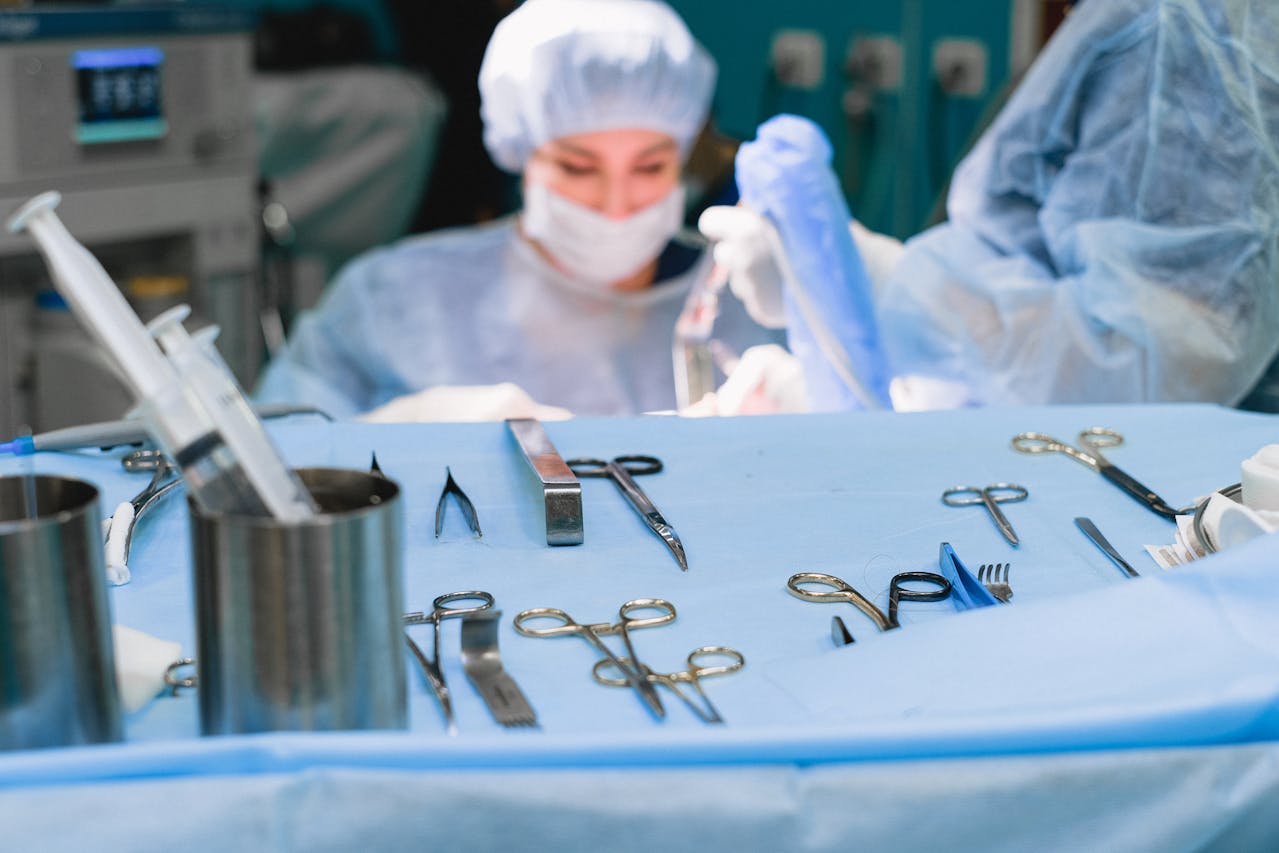
It is believed that the first surgery, a leg amputation, was done 31,000 years ago on a child living on the island of Borneo. Over thousands of years, the science and skills that drive surgery have continued to evolve. It is now at the level where robots can help perform complex operations.
Still, as advanced as surgery has become, mistakes still happen in the operating room. Throughout the U.S., patients put their complete trust in surgeons when undergoing surgery.
Unfortunately, there is no guarantee that they won’t become victims of a serious surgical error. 4,000 surgical mistakes happen in the U.S. every year. This results in terrible health complications and extended hospital stays.
In some instances, these mistakes also result in legal battles.
Surgical errors refer to avoidable mistakes made during a surgical procedure. A surgical error can be minor or serious. Serious errors can result in complications that may cause a patient injury. In extreme cases, these complications may be fatal.
A surgical error can also happen at any stage of a surgical procedure. Mistakes made during a pre-op assessment or post-op care can also be classed as a surgical error.
For most patients, a surgical error has an intense impact physically, emotionally, and even financially. Sometimes, more surgery or treatment is required to fix a mistake, which means the patient is in even more pain and distress.
The surge in medical malpractice cases across America highlights the most common surgical error types. These include the following:
Wrong-site surgery. It seems extraordinary that a surgeon in 2025 would operate on the wrong side of a patient’s body. Yet, this is still a prevalent surgical error in the U.S.
Sometimes, a wrong-site surgery means amputating the wrong arm or leg. Often, it means a surgeon removes the wrong organ (for instance, the left kidney instead of the right). Removing the wrong organs can lead to serious health complications. This mistake may also result in a patient having to undergo more surgery.
Wrong-site surgery can also result in long-term disability. Mistakes like this usually happen when medical records are incorrect or nursing staff fails to follow preoperative verification protocols. Poor communication between surgical staff can also result in such errors.
Wrong-patient surgery. It seems even stranger that a doctor could operate on the wrong person, but it happens. Wrong-patient surgery happens when one patient undergoes a procedure meant for another. When this happens, it could mean an unnecessary, harmful operation and not receiving a life-saving surgery. Both patients are affected and impacted.
If there is confusion due to similar patient names or if hospital staff do not follow identification procedures, it is easy for this type of mistake to happen. In addition to physical health issues, those who are victims of a wrong-patient surgery may also suffer psychological trauma.
Retained surgical instruments. Many patients experience pain for months to years after surgery. Often, this can be attributed to a slow healing process. Other times, it is because the patient does not know a surgical instrument is inside their body.
It is not uncommon for surgeons to accidentally leave a clamp, sponge, or even a needle inside a patient. They close a patient up, stitch their wounds, and eventually send them home.
In some instances, a retained surgical instrument can cause severe infections or internal bleeding. In severe cases, it could even cause the patient’s death.
When surgical assistants (interns) do not follow the instrument counting procedure, it could result in an instrument being left inside a patient. Fatigue or unexpected distractions also contribute to these errors.
Patients who discover a surgical instrument in their bodies may be able to file a legal case against their surgeon.
Anesthesia errors. Anesthesia mistakes can create a nightmare situation in an operating room. When an anesthesiologist makes a mistake, it can result in inadequate pain control or an allergic reaction.
Even worse, it could result in anesthesia awareness. This means a patient wakes during their surgery and can feel the surgeon cutting into them. Anesthesia awareness also means patients cannot communicate and cannot alert the doctor to their extreme pain.
Anesthesia mistakes usually happen when an anesthesiologist miscalculates the dosage. If an allergic reaction occurs, it is often because the anesthesiologist has not reviewed the patient’s history.
Other, perhaps less common, types of surgical errors include inadvertent nerve damage and organ perforation.
When a surgeon makes a mistake while cutting near critical nerves, it can lead to chronic pain or even paralysis. These errors are often the result of poor surgical technique or a lack of proper training.
A surgeon can also accidentally puncture an organ during a procedure. This can cause internal bleeding or a severe infection. This is a serious error that must be corrected immediately.
If the surgeon does not fix the mistake quickly enough, it could result in sepsis and organ failure.
If you are the victim of a surgical error, it will affect your health, mental health, and finances. Depending on the serious mistake, you may face a long recovery period during which you cannot work. Your family will also be affected, especially if you are the primary income earner.
Fortunately, you have legal recourse if you have been affected by a surgical error. You can seek compensation for your losses and damages. Medical malpractice laws in West Virginia, Ohio (and other states) allow you to file a lawsuit against a negligent surgeon. This can help you recover damages for medical bills, lost wages, and pain and suffering.
Surgical mistakes are highly preventable, but they continue to happen for various reasons. If you or a loved one has been affected by negligence during surgery, you should hire a reputable medical malpractice lawyer. Doing this is the best way to hold the negligent surgeon responsible and receive the compensation you deserve.